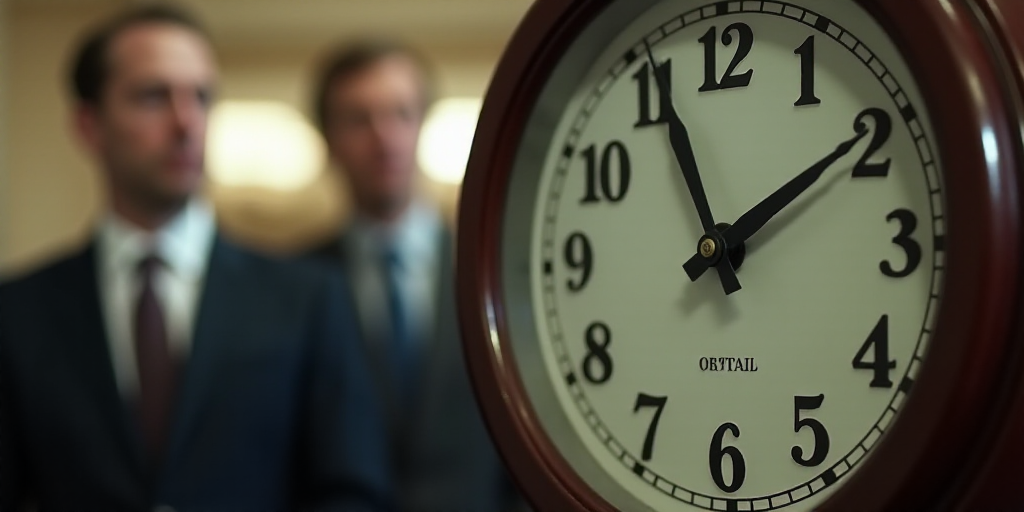Background on the Sector’s Relevance and Key Figures
René Loya Poletti, the interim president of the Chamber of Commerce in Querétaro, represents a significant voice in the Mexican business community. His organization plays a crucial role in advocating for policies that affect local and regional commerce. As the discussion around reducing the workweek from 48 to 40 hours gains traction, Loya Poletti’s stance becomes increasingly relevant for understanding the potential impact on businesses and employees in Querétaro.
The Sector’s Proposal for 40-Hour Workweek
In response to the proposed reduction in the standard workweek, Loya Poletti emphasized that the Querétaro commerce sector seeks federal tax incentives for companies willingly adopting this new work arrangement. He argued that such incentives would help offset the anticipated rise in inflation due to increased labor costs.
Anticipated Consequences of the 40-Hour Workweek
Loya Poletti contends that the 40-hour workweek will necessitate larger workforces, leading to higher production costs. Consequently, businesses will likely pass these increased expenses onto consumers in the form of higher prices for goods and services.
Challenges for Businesses
The interim president highlighted that implementing the 40-hour workweek presents a considerable challenge for businesses, particularly in measuring productivity and ensuring efficient use of employees’ time. He also pointed out that the shift towards objective-based evaluations rather than hours worked requires a cultural adjustment and additional time for implementation.
Current Situation in Querétaro
Loya Poletti acknowledged that some businesses and sectors in Querétaro already operate under a 40-hour workweek due to periods of inactivity during working hours. He mentioned that, in collaboration with other business chambers, they have agreed to postpone the reduction to 40 hours until 2030, allowing for a gradual transition.
Economic Impact of the Upcoming School Year
Feria de Regreso a Clases (Return to School Fair):
During an interview, Loya Poletti discussed the economic impact of the upcoming school year, specifically referencing the Feria de Regreso a Clases (Return to School Fair) organized by the Chamber of Commerce from August 15-17. The event attracted approximately 1,500 daily visitors and generated an economic impact of 1.5 million pesos.
The sectors with the highest sales during this fair were stationery, footwear, and optometry, accounting for 80% of total revenue.
Future Plans for the Feria de Regreso a Clases:
Following the success of this year’s fair, Loya Poletti announced that the Chamber of Commerce intends to reinstate the event annually, positioning it as a mid-August consumer event. The fair was suspended during the Covid-19 pandemic, and its return aims to bolster local businesses and the Querétaro economy.
Key Questions and Answers
- What is the main concern of the Querétaro commerce sector regarding the proposed 40-hour workweek? The primary concern is the anticipated increase in inflation due to higher labor costs, which businesses aim to offset through federal tax incentives.
- How will the 40-hour workweek affect businesses in Querétaro? Businesses will likely face challenges in measuring productivity and ensuring efficient use of employees’ time. They may also encounter difficulties in adjusting to objective-based evaluations rather than hours worked.
- What is the current agreement regarding the reduction of the workweek in Querétaro? The Chamber of Commerce, in collaboration with other business organizations, has agreed to postpone the reduction to a 40-hour workweek until 2030, allowing for a gradual transition.
- What was the economic impact of the Feria de Regreso a Clases (Return to School Fair) in Querétaro? The fair attracted around 1,500 daily visitors and generated an economic impact of 1.5 million pesos, with stationery, footwear, and optometry sectors driving 80% of total sales.
- Will the Feria de Regreso a Clases be held annually in Querétaro? Yes, the Chamber of Commerce intends to reinstate the event annually, positioning it as a mid-August consumer event following its suspension during the Covid-19 pandemic.






